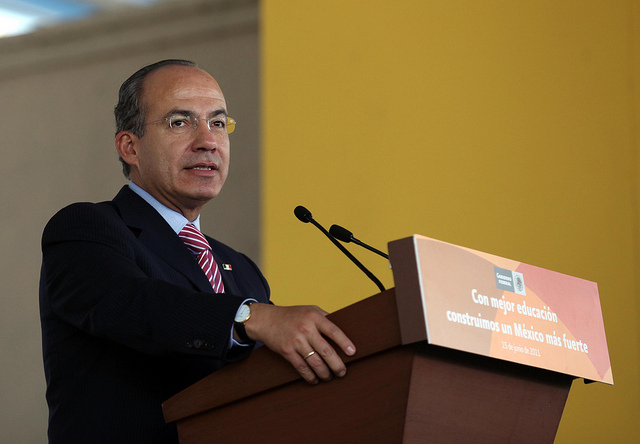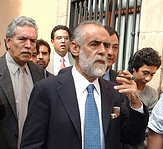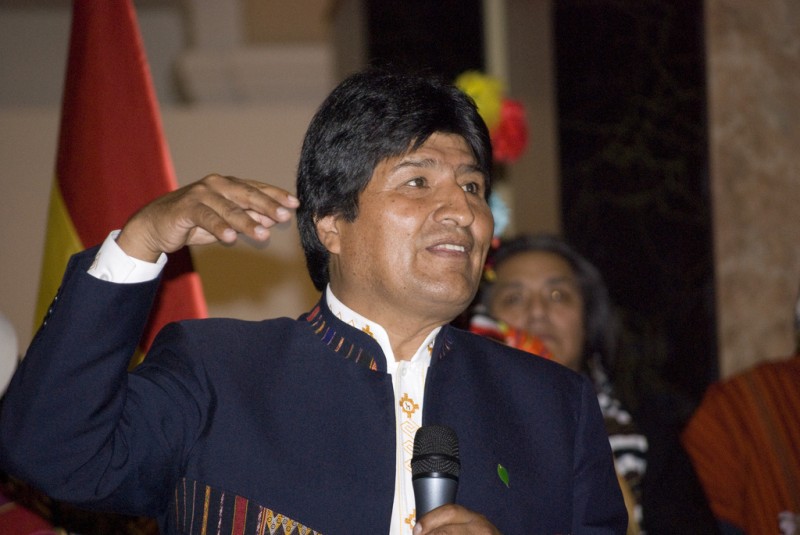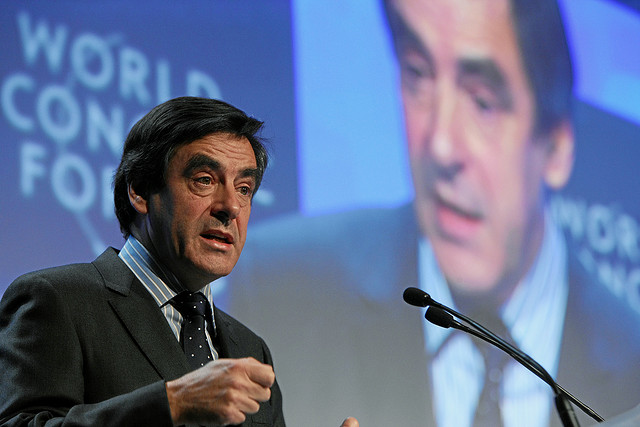
Latin America: Week in Review, Mexico
21 Mexican Federal Prosecutors Quit As Purge Continues
August 2, 2011 By Staff
Today in Latin America
Top Story— In the largest mass resignation in recent history 21 top federal prosecutors in Mexico left their posts, the country’s Attorney General’s Office announced Monday. While officials did not provide any explanation for the resignations, the news comes only a week after the department announced that 111 of its staff had been charged with crimes and 192 more were fired for botching cases. Among those leaving their jobs were the top federal prosecutors for Mexico City as well as prosecutors from drug war hotspots in the states of Durango, Tamaulipas and Sinaloa. “Mexico today requires that those of us performing public duties do so with complete dedication and responsibility,” said Mexican Attorney General Marisela Morales, who started work in April vowing to clean-up the office and combat drug cartels.
Read More From The Miami Herald.
Headlines from the Western Hemisphere
North America
- The Obama administration plans to challenge Alabama’s new immigration law that allows police to detain people stopped for traffic offenses who are suspected of being in the country illegally.
- A Mexican drug cartel hitman who allegedly ordered the killing of over 1,500 people could be extradited to the U.S.
- Exiled Cuban writer Eliseo Alberto died over the weekend in Mexico, where he recently underwent treatment for a kidney transplant.
Caribbean
- The Central Intelligence Agency released secret papers Monday in Washington concerning the Bay of Pigs invasion, in response to a Freedom of Information Act request filed by Peter Kornbluh of the National Security Archive.
- No new details on Cuba’s economic reforms emerged after the National Assembly’s meeting Monday, but head of state Raúl Castro said the government is working to change migratory rules that prohibit Cubans from leaving the island without permission.
- A group of between 60 and 80 protesters pitched tents and laid down in the middle of one of Port-au-Prince’s busiest streets Monday to protest the Haitian government’s efforts to push them from a private lot where they’ve lived since the 2010 earthquake.
- Cervecera de Puerto Rico, the islands most important brewer, will launch a premium beer called Magna Special Craft, the company said Monday.
- Tropical Storm Emily formed in the Caribbean Monday, prompting the area’s governments to issue warnings and watches.
Central America
- Panamanian authorities seized more than half a ton of heroin over the weekend in an abandoned truck parked along a road in the remote Caribbean coast town of Gobea.
- The U.S. Coast Guard seized a drug submarine carrying 7.5 tons of cocaine off the coast of Honduras.
- Guatemalan authorities apprehended a third suspect in connection to the killing of Argentine folk singer Facundo Cabral
Andes
- Venezuelan President Hugo Chávez appeared on television Monday with his head shaved, as he prepares for a second round of chemotherapy, and referred to the style as his “Yul Brynner” look.
- A newly negotiated free trade agreement between Colombia and Mexico went into effect Monday. Colombian President Juan Manuel Santos made the announcement from Mexico on a state visit.
- Foreign tourists are now visiting Bolivia to help shear llamas.
- Unlike the Mexican case, it appears that in Colombia criminal syndicates are consolidating into just two major networks.
- The Ecuadoran government wrote a response to a Washington Post editorial criticizing President Rafael Correa for filing a criminal defamation suit against the newspaper El Universo. For background, see our post “Ecuador’s Rafael Correa Joins Twitter.”
Southern Cone
- A man in Argentina was released on bail on Monday after being detained in connection with the murder of two French women found shot dead in a tourist area in northern Argentina.
- The Uruguayan government condemned statements denying the Holocaust made by Iran’s ambassador to the country.
- Striking workers at Chile’s Escondida copper mine said they are willing to lower the size of a bonus it demands from the company.
- Brazil hopes to cut its deficit in manufactured goods by about 40 percent by 2014 as part of President Dilma Rousseff’s industrial policy.





